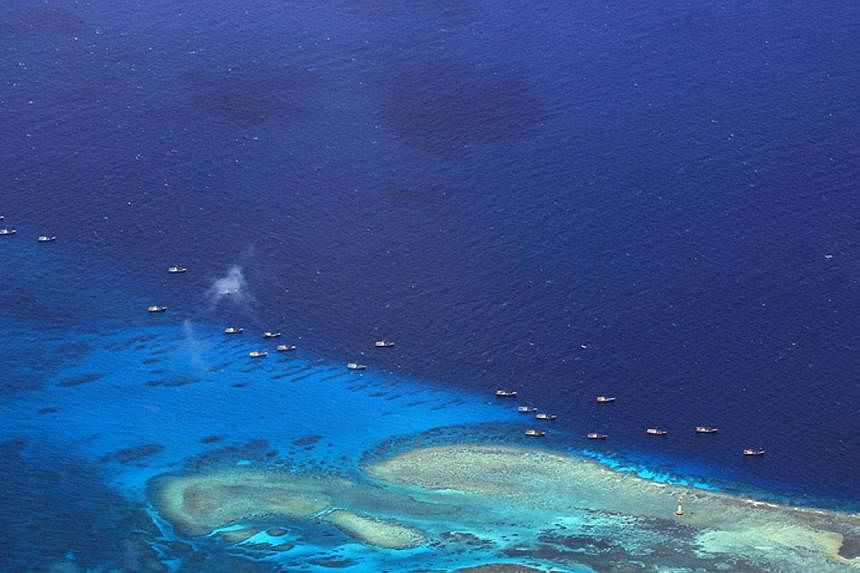PRESIDENT Xi Jinping's pledge that China would use peaceful means to resolve territorial disputes had barely registered with rival claimants when news came that Beijing was building defence infrastructure on a disputed reef. The latter brought home all too clearly another crucial point that Mr Xi made in his speech to the Australian Parliament last week. He said "the Chinese people will firmly uphold the core interests of China's sovereignty, security and territorial integrity". Implicit in China's words and actions is that while it will try to resolve the disputes peacefully, it is not abjuring the assertion of its claims over contested areas with force, if necessary.
The reef in question is Fiery Cross, part of the Spratly islands which are claimed wholly or in part by China, Taiwan, Brunei, Vietnam, Malaysia and the Philippines. It is being reclaimed by the Chinese to a size big enough to accommodate an airstrip, as reported last week. In addition, a harbour is being dug there that appears big enough for tankers and naval warships. Manila has protested against the construction and Washington has also called on the Chinese to stop the project. That has merely drawn a retort from a Chinese general that the building will continue because it is "justifiable". So much for peace via consultation and negotiation.
This is not an encouraging sign after two years of forcefulness -unilaterally declaring an Air Defence Identification Zone in the East China Sea, effectively seizing control of the Scarborough Shoal after a stand-off there with Philippine forces, and placing an oil rig in contested waters. Thus, international observers might well wonder if the Chinese are really ready to soften their stance on territorial issues.
At The Straits Times global outlook forum last week, veteran diplomat Kishore Mahbubani disclosed that he had been asked by the Chinese to give a talk on "the mistakes that China had made" and that there is a debate in China on the kind of great power it should be. Such introspection is necessary if Beijing is to avoid negating efforts to win over others on the economic front. Mr Xi spoke about an "Asia-Pacific dream" of shared development and prosperity at this month's Apec summit. At the same meetings, China established the Asian Infrastructure Investment Bank, started the Silk Road Fund and pushed for the Free Trade Area of the Asia-Pacific.
It doesn't take much to see that such worthy aspirations will always be at odds with gunboat diplomacy. China's leaders ought to acknowledge the counter-productivity of such a dual approach and lend credence to Mr Xi's pledge by giving precedence to consultation. A good start would be to play an active role to conclude a binding Code of Conduct in the South China Sea.

